People Who Share A Bed With Their Pet Usually Display These 5 Traits, According To Psychology
Love curling up with your pet at night? These traits might explain why.
 Harbucks | Shutterstock
Harbucks | Shutterstock You sit on your bed with your dog to take and moment and appreciate the joy of a shared moment of relaxation with your furry-faced friend. The breeze through the window picks up, you feel a chill, and your dog circles around to cuddle against your back and lies down. The dog's higher body temperature against your lower back raises your body temperature, and you relax a little more.
If your pet gets prime real estate on your bed, it might reveal more about your personality than you think. People who share a bed with their pet often share five profound traits tied to connection, compassion, and, well, cuddling.
Here are five traits displayed by people who share a bed with their pet, according to psychology:
1. They thrive on closeness and shared space
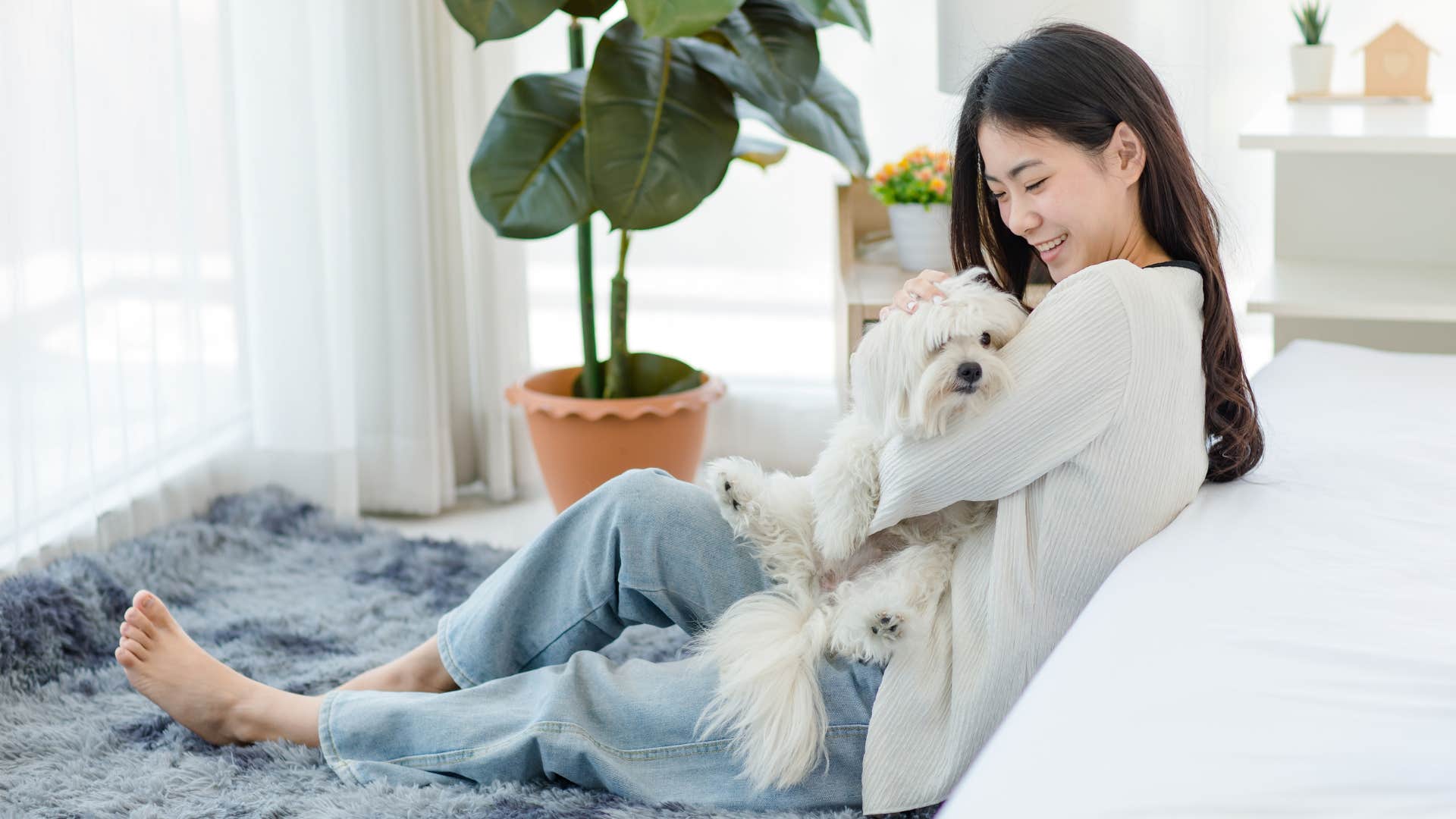 Bangkok Click Studio via Shutterstock
Bangkok Click Studio via Shutterstock
Life coach Sidhharrth S. Kumaar knows how letting a pet share their sleeping quarters shows a comfort with emotional warmth, connection, and trust. Many find that having a pet calms anxiety, reduces loneliness, or meets a desire for simple, mutual nurturing.
It can also show, although non-verbal, that the person finds peace and safety in company, as suggested by a Mayo Clinic study. The study "evaluated the sleep of humans and dogs occupying the same bedroom to determine whether this arrangement was conducive to sleep," to show that "humans with a single dog in their bedroom maintained good sleep efficiency; however, the dog's position on or off the bed made a difference. A dog's presence in the bedroom may not be disruptive to human sleep, as was previously suspected."
2. They are highly attentive to other people's emotions
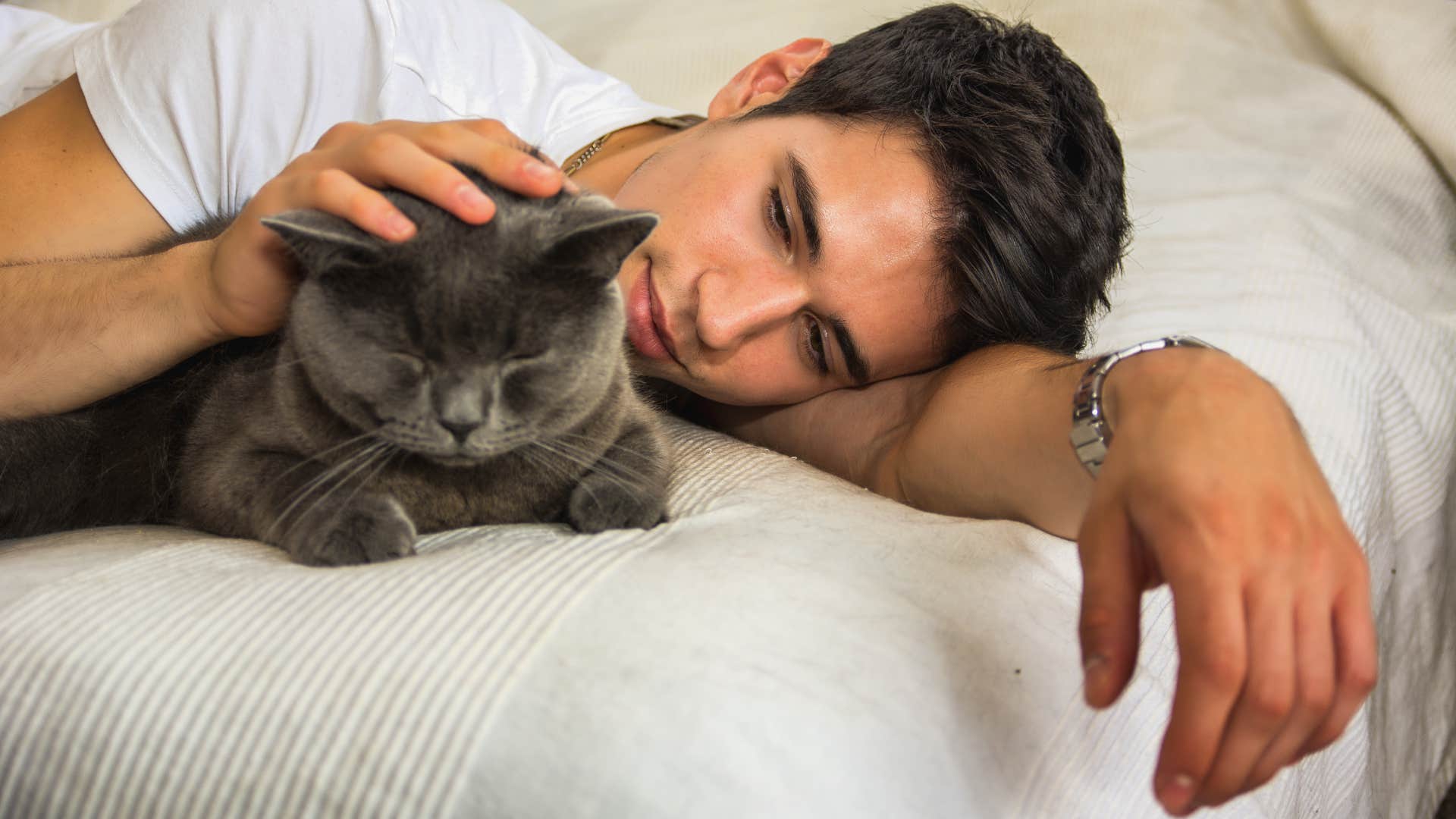 ArtOfPhotos via Shutterstock
ArtOfPhotos via Shutterstock
Marriage counselor Larry Michel loves this question because his small dog has slept in his bed since the dog was a tiny puppy. Larry adds, it helps that he has hair instead of fur.
Pets are often a source of complete acceptance and presence. Allowing them to close, especially in our beds, reveals a strong emotional connection and comfort from close bonds with animals, reflecting sensitivity and compassion.
3. They embrace affection in all forms
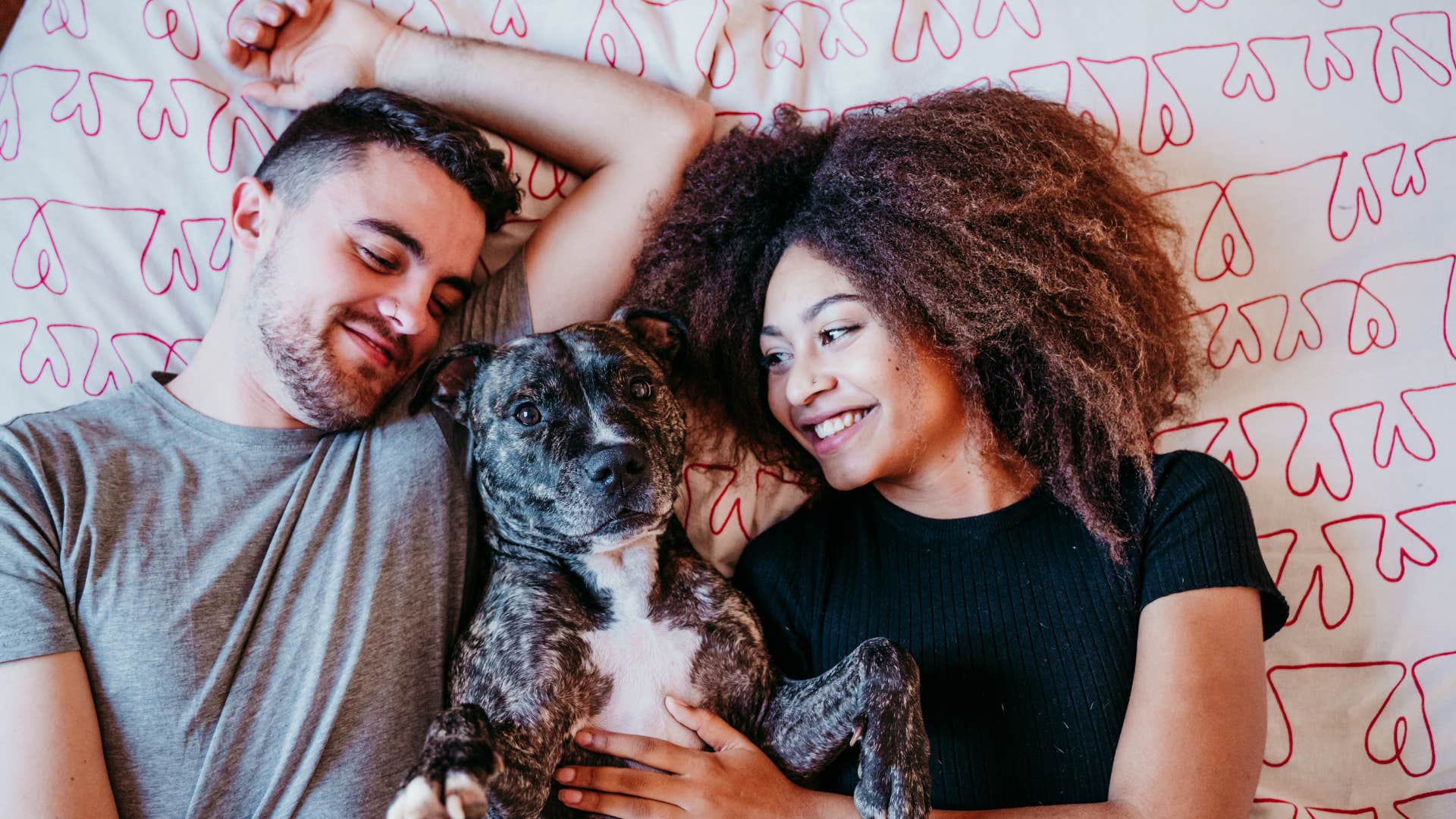 eva_blanco via Shutterstock
eva_blanco via Shutterstock
People who sleep with their furry little friends understand that love and comfort don't have arbitrary boundaries, explains therapist Gloria Brame, Ph.D. They see their pets as family members and love having them around as often as possible.
While pet companions set strict boundaries or feel "dogs do best in their kennel or bed," others simply love the comfort of cuddling and bonding in bed with their pets. The quiet, soulful connection they experience with animals transcends social conventions.
They don't mind the inconveniences of allowing pets in bed, such as the snoring, repositioning, or making loud grooming noises at 3 am, as explained by a 2015 study. Some find their furry friends' antics in bed to be entertaining, which lifts their spirits and gives them a good laugh before sleep.
Overall, it takes an independent spirit to do what makes you genuinely happy without worrying about judgment from others. Full disclosure, Dr. Brame says, "I sleep with my doggies and wouldn't have it any other way."
4. They gravitate toward warmth, especially cuddling
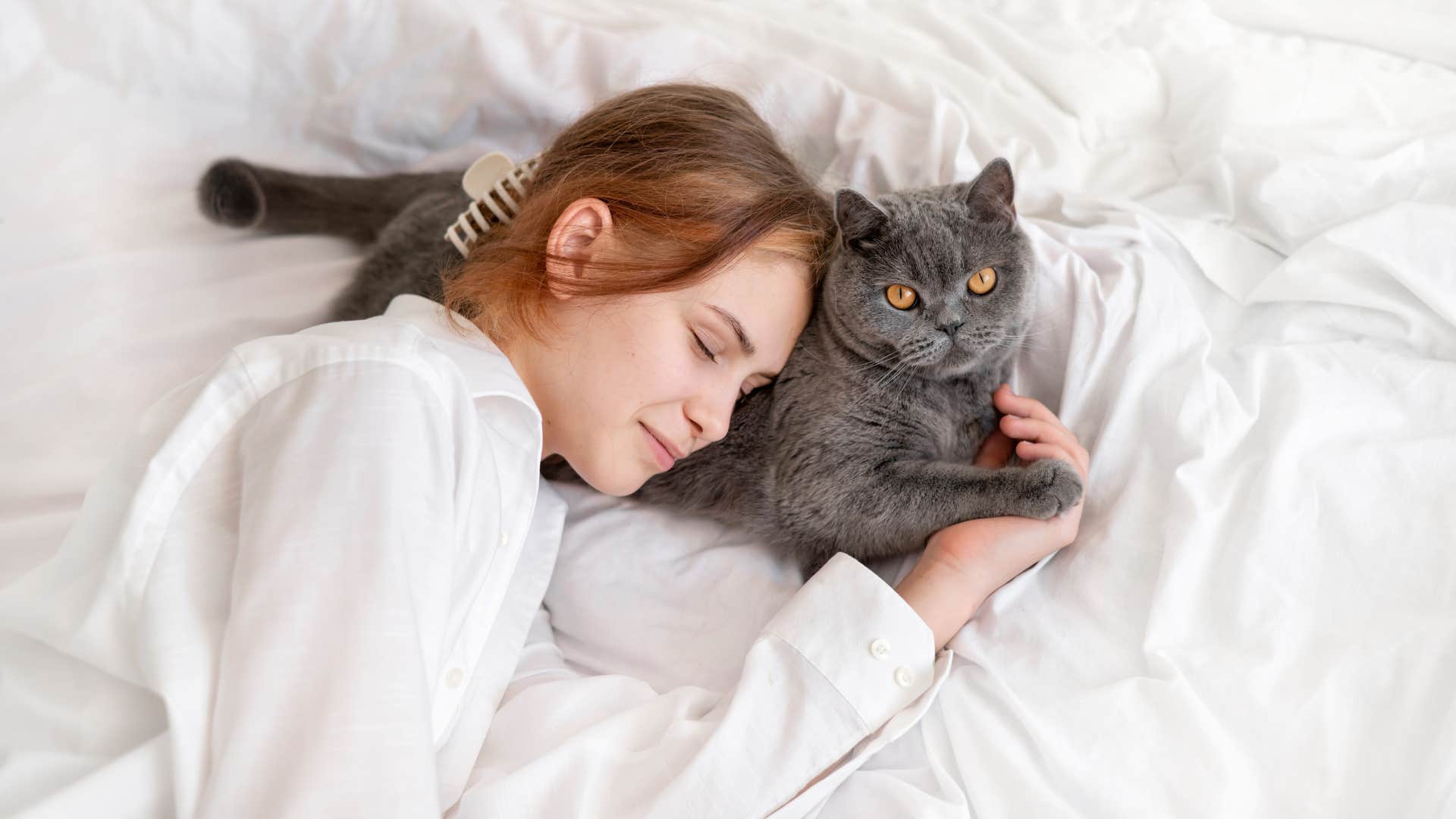 Viktoriia Lomtieva via Shutterstock
Viktoriia Lomtieva via Shutterstock
Dr. Brame elaborates on the human animal bond, people who like to hug, caress, and otherwise enjoy little physical shows of affection to those they love are naturally attracted to fur babies who revel in that kind of attention.
Their fur is comfortingly soft, they are so happy when you pet them, plus some of them even want to sleep with you. It's a logical conclusion that people who love their pets and love showing affection will let their pets share their bed.
A 2012 study almost could not stop finding positive results of human-animal interactions with "benefits for social attention, social behavior, interpersonal interactions, and mood, increased trustworthiness of and trust toward other persons; reduced aggression, enhanced empathy and improved learning."
The common underlying mechanism in the identified benefits of human-animal interactions was the release of oxytocin, the feel-good hormone, as the study showed. So go ahead and snuggle a pup or cuddle a kitty while you snooze.
5. They have a deep capacity for unconditional love
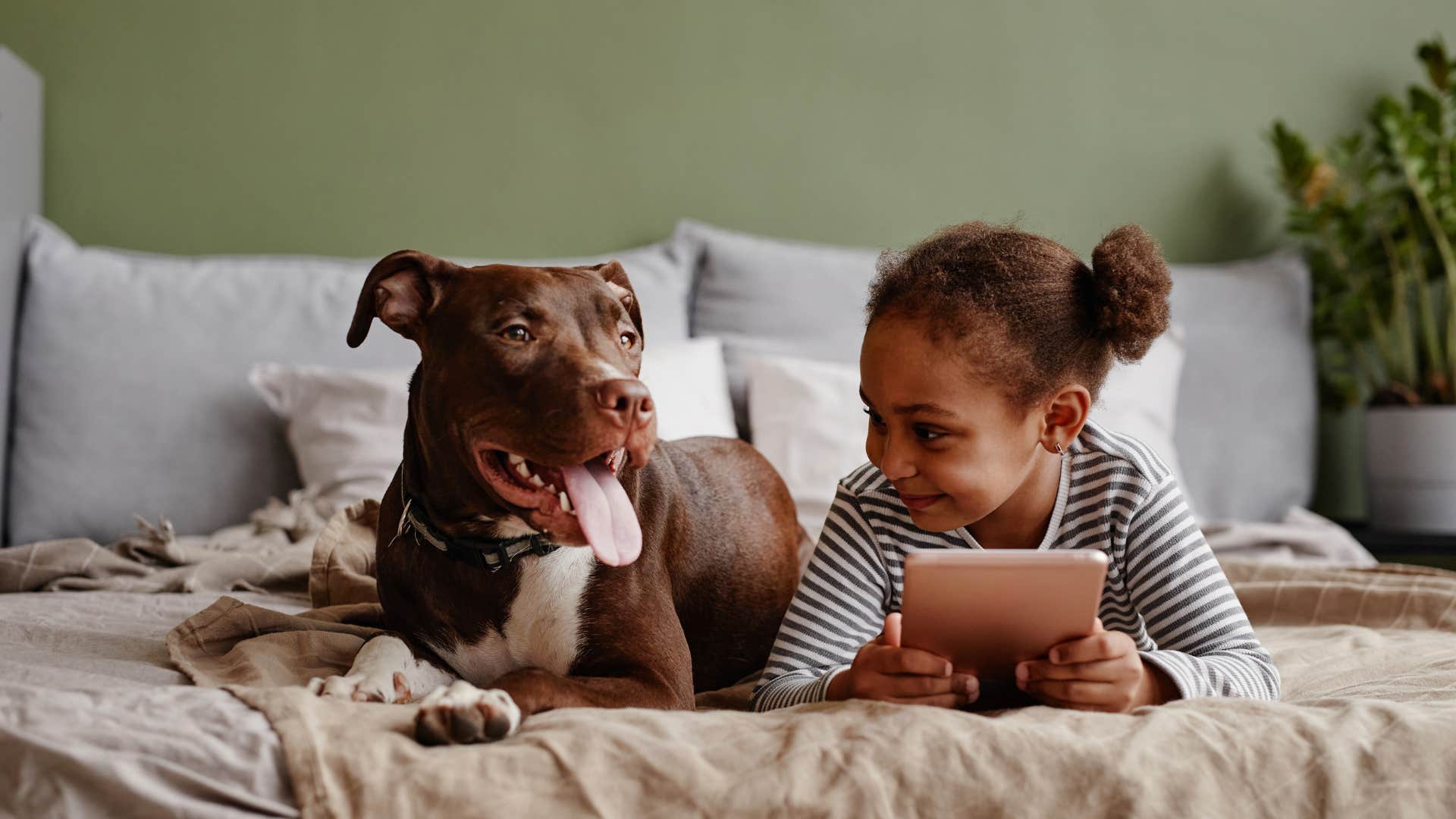 SeventyFour via Shutterstock
SeventyFour via Shutterstock
You'll often hear that co-sleeping with a pet is an intimate bonding experience to foster closeness or encourage your pet to protect you, explains editor Aria Gmitter. This is true. You are letting them be with you at your most vulnerable — a state of unconsciousness.
But pets can be like having a sleepless toddler with an unpredictable waking cycle. Pets can be super inconvenient to have in your bed. Sometimes they will take over the blankets or move around. They'll have a 4 am cleaning right near your face, or put their rump on your pillow, or even slap you with their tail and talk when you're trying to sleep in.
Cats will guilt you for getting up to go to work, and dogs will rouse you at the crack of dawn. But when you love your pet, you take it all as part of the package deal.
Just as if that were your human child, you decide to love them anyway. You might swear you'll never let them in your room again, but when you go to bed and your pet looks at you with those eyes, you forgive them quickly and put them above yourself.
With them balled up somewhere in the bed, knowing they may likely ruin your sleep, you just love them unconditionally, dirty paws and all.
Will Curtis is YourTango's expert editor. Will has over 14 years of experience as an editor covering relationships, spirituality, and human interest topics.

